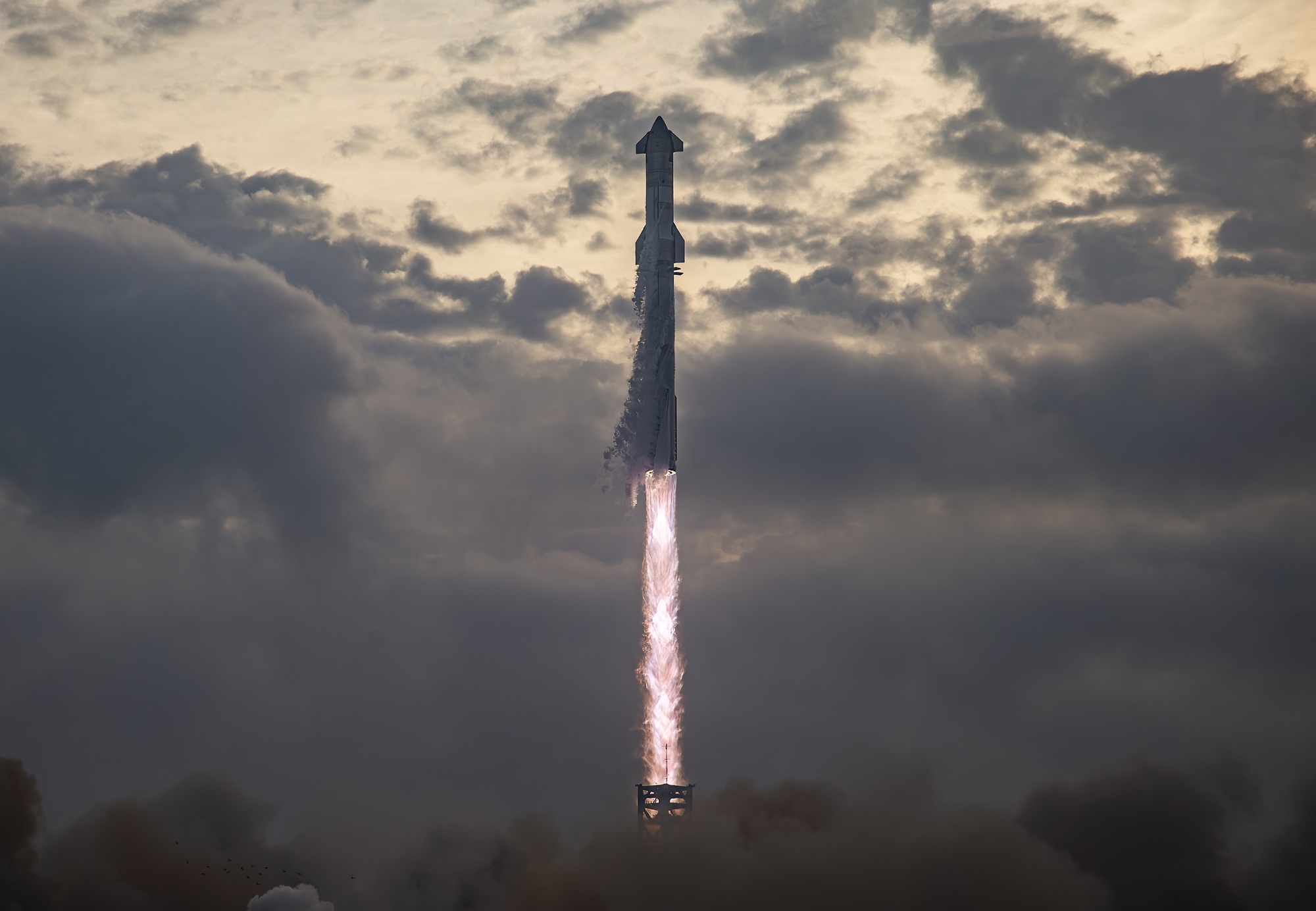
WASHINGTON — SpaceX hopes to hold the next launch of its Starship spacecraft in early May, a timeline that depends on how quickly it obtains a revised launch license.
Speaking at the Satellite 2024 conference on March 19, Gwen Shotwell, president and chief operating officer of SpaceX, said the company is still reviewing data from the vehicle's third integrated launch on March 14, but expects it to be ready to fly again soon.
“We are still reviewing the data” from the flight, she said when asked about analyzing data from the mission. “It was an incredibly successful trip. We got exactly where we wanted to go.”
In this launch, both the Super Heavy booster and Starship's upper stage performed as expected upon ascent, putting the vehicle on its planned suborbital trajectory. The spacecraft's payload door was opened while in space and a demonstration of the propulsion transfer, which transfers liquid oxygen between two tanks on the vehicle, began.
However, a planned restart of the Starship's Raptor's engines was not performed while it was in space, which the company blamed on the resulting roll in the vehicle. While returning, the vehicle crashed at an altitude of about 65 kilometers. The super-heavy booster also exploded during the final stages of its descent into the Gulf of Mexico during a planned burn during landing.
“We will find out what happened in both phases,” she said, not discussing what might have gone wrong in either one. “And we hope to be back flying in about six weeks,” or early May.
She added that the company does not expect to deploy Starlink satellites in the upcoming Starship launch, as some had expected. “Things are still in the trade, but I think we'll really focus on re-entering properly and making sure we can land these things where we want them.”
This timeline will depend on the completion of the accident investigation that must be approved by the Federal Aviation Administration, which will then have to modify the Starship's current launch license before the next launch.
Speaking at the Space Capitol III by Payload event on March 18, Kelvin Coleman, the FAA's associate administrator for commercial space transportation, said he doesn't expect this investigation to raise any major issues that could significantly delay the next launch.
He said: “It ended in what we call an unfortunate accident, but in the end we consider it a successful launch attempt,” because it resulted in no injuries or property damage. “SpaceX was able to collect a significant amount of data from this launch.”
He said he expected SpaceX to provide a quick report investigating the incident, noting that after the second Starship flight, the company completed that report in several weeks. “We expect it to be the same here. We haven't seen anything major. We don't think there are any safety-critical systems involved.”
The FAA has updated SpaceX's Starship launch license after each flight so far to reflect changes to the mission, such as the different suborbital trajectory used in the last flight. However, Coleman said the agency wants to move to a process where the license is valid for a “group of launches” rather than individual launches. This is especially important, he added, because SpaceX is planning another six to nine Starship launches this year.
This is part of a broader effort to streamline the launch licensing process to address industry and Congressional criticism that the FAA is moving too slowly in approving launch licenses under a new set of regulations known as Part 450. Coleman announced at the FAA's Commercial Space Transportation Conference on the 21st February that the agency would create an Aviation Rulemaking Committee, or SpARC, to formally gather industry input on ways to improve Part 450.
Shotwell, on the 2024 Satellite Conference panel, did not say how many Starship projects the company is launching this year, but said the focus is on getting the vehicle operational.
“I want to send the spacecraft into orbit, deploy the satellites, and recover both stages, with a quick turnaround on those as well,” she said.




More Stories
Boeing May Not Be Able to Operate Starliner Before Space Station Is Destroyed
Prehistoric sea cow eaten by crocodile and shark, fossils say
UNC student to become youngest woman to cross space on Blue Origin